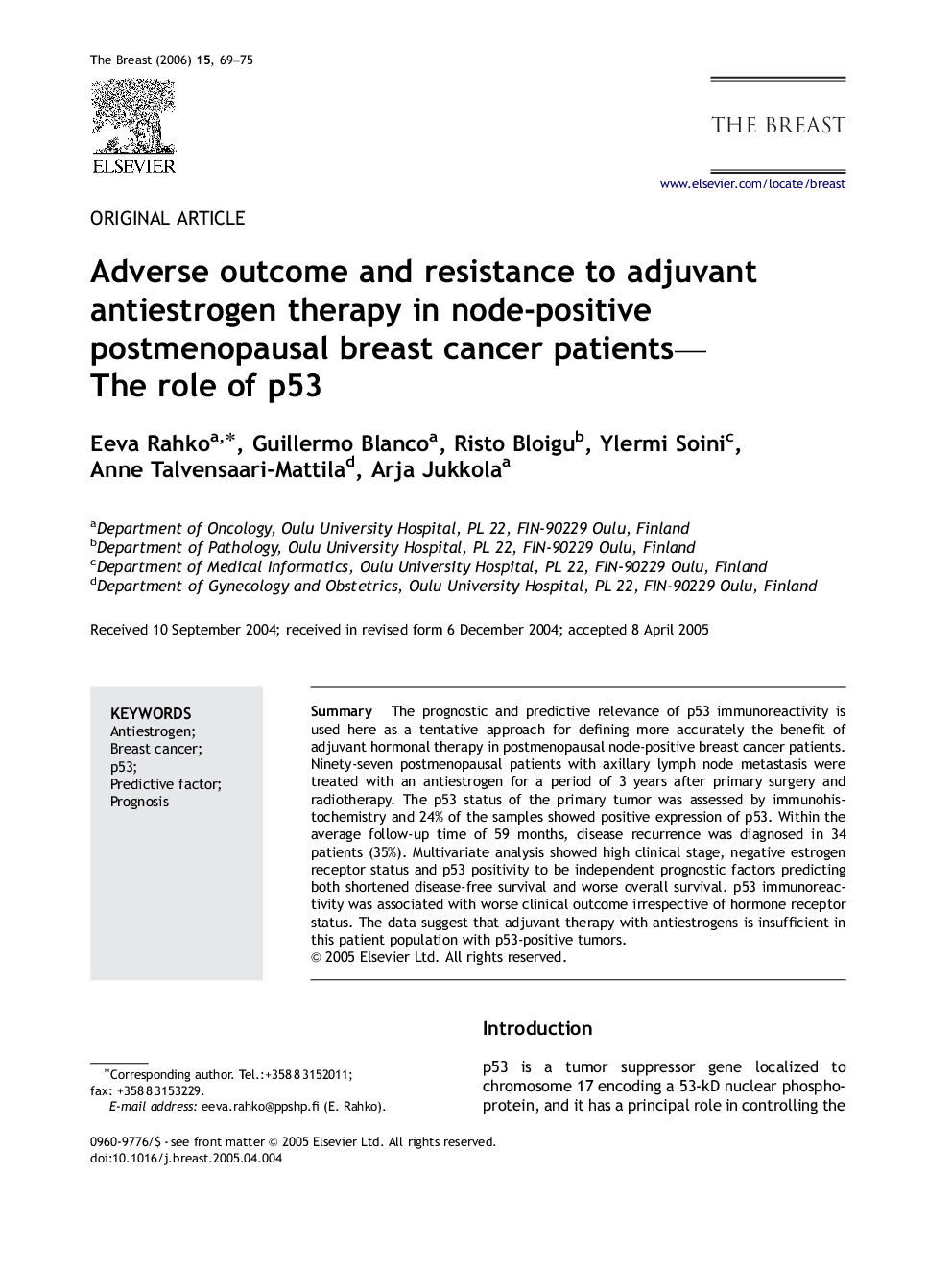| Article ID | Journal | Published Year | Pages | File Type |
|---|---|---|---|---|
| 3910374 | The Breast | 2006 | 7 Pages |
Abstract
The prognostic and predictive relevance of p53 immunoreactivity is used here as a tentative approach for defining more accurately the benefit of adjuvant hormonal therapy in postmenopausal node-positive breast cancer patients. Ninety-seven postmenopausal patients with axillary lymph node metastasis were treated with an antiestrogen for a period of 3 years after primary surgery and radiotherapy. The p53 status of the primary tumor was assessed by immunohistochemistry and 24% of the samples showed positive expression of p53. Within the average follow-up time of 59 months, disease recurrence was diagnosed in 34 patients (35%). Multivariate analysis showed high clinical stage, negative estrogen receptor status and p53 positivity to be independent prognostic factors predicting both shortened disease-free survival and worse overall survival. p53 immunoreactivity was associated with worse clinical outcome irrespective of hormone receptor status. The data suggest that adjuvant therapy with antiestrogens is insufficient in this patient population with p53-positive tumors.
Related Topics
Health Sciences
Medicine and Dentistry
Obstetrics, Gynecology and Women's Health
Authors
Eeva Rahko, Guillermo Blanco, Risto Bloigu, Ylermi Soini, Anne Talvensaari-Mattila, Arja Jukkola,
